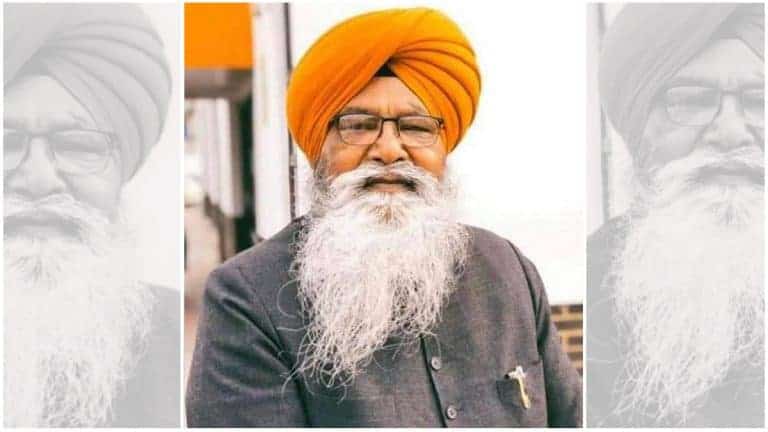New Delhi: India is a country that gave proper burial to Pakistani soldiers and infiltrators who died in the Kargil War. It’s a country where even Mumbai attack terrorist Ajmal Kasab got his last rites after hanging. But today, that empathy for a person’s final journey and dignity is lost in the coronavirus pandemic.
Nirmal Singh Khalsa was a Padma Shri awardee who dedicated his life to working as a hazoori ragi at the Golden Temple in Amritsar, where he performed the kirtan. On 2 April, after he died of Covid-19, it took the authorities 16 hours to find a place to cremate him because residents in two of Punjab’s villages – Verka and Jethuwal — refused to let his last rites be carried out at public crematoriums. Eventually, he was cremated at an isolated, untidy plot near the Verka border.
Khalsa is not the only one. In Chennai, Dr Simon Hercules, a neurosurgeon, died on 19 April of Covid-19, which he most likely got from one of his patients. The small group of Dr Hercules’ family members and two doctors was on their way to a burial ground, when they got wind that around 100 people had gathered to prevent the funeral from taking place. The ambulance carrying his body was driven to another burial spot, where a mob attacked the group with wooden logs and stones. It was only after a call was made to the health ministry that Dr Hercules could be buried – in the dead of the night, without any of his family members attending the last rites.
In Meghalaya, authorities, including crematorium officials, denied permission to bury Dr John L. Sailo Ryntathiang, director of Bethany Hospital in Shillong. He was finally buried a day later, with the incident prompting the Meghalaya High Court to issue a late night order saying strict action would be taken against those who obstruct funeral proceedings.
It’s as if Covid-19 has robbed us of even our basic humanity.
Protesting against funerals, social distancing be damned
There is also a striking irony in the situation. The people who are preventing funerals from taking place are doing so out of fear. They worry that a funeral might lead to the spread of the virus, whether from the corpse or from the mourners or even from the crematorium or burial staff.
But their way of dealing with the worry is to do something that will most certainly not help contain the spread of the coronavirus: gather in large numbers to protest or physically attack the mourners. Social distancing be damned.
As of now, there is no evidence that Covid-19 can be transmitted from a corpse. But even so, the World Health Organization (WHO) has issued clear guidelines on how to handle a coronavirus casualty — for the hospital staff, funerary service staff as well as mourners, who are not even allowed to touch or kiss their deceased loved ones.
In Delhi, Jadeed Qabristan has been declared a Covid-19 burial ground after reports emerged that people were facing trouble finding a place for the deceased. Masked gravediggers maintain distance while they supervise the burial of “corona cases”, bodies that are brought to the cemetery sealed in plastic bags, accompanied by family members in hazmat suits who have the debilitating task of lifting and lowering the body into the grave.
But of course, facts cease to play a role for Indians divided by religion and caste, but united in ignorance and herd mentality.
Death in a pandemic
Apart from the higher numbers that hospital, morgue and funerary service staff have to deal with, there is the financial cost of a funeral, one that many cannot shoulder, especially if the lockdown has put them out of a job. In New York, an infection hotspot, there is a demand for federal funding for funerals because the hardest-hit communities cannot afford the expenses.
And then there is the emotional cost. The immediate family is left grieving alone, the extended family and friends sit helplessly far away in their homes, dressed formally for a funeral that they might only attend on a muted video call on Zoom.
It’s bad enough that you can’t travel to another city to be with your dying friend or relative, or even step out of your home to share in someone’s grief. But you also have to deal with the possibility that you might not even be able to give your dead partner, child, parent or sibling even the most basic final goodbye, just because some idiotic mob decided to assert it knows better than the health experts.
It is a truth universally acknowledged that death is the great equaliser. Today, it is better to be an executed death row prisoner than a Covid-19 fatality. At least one knows one will be given a dignified last journey.

